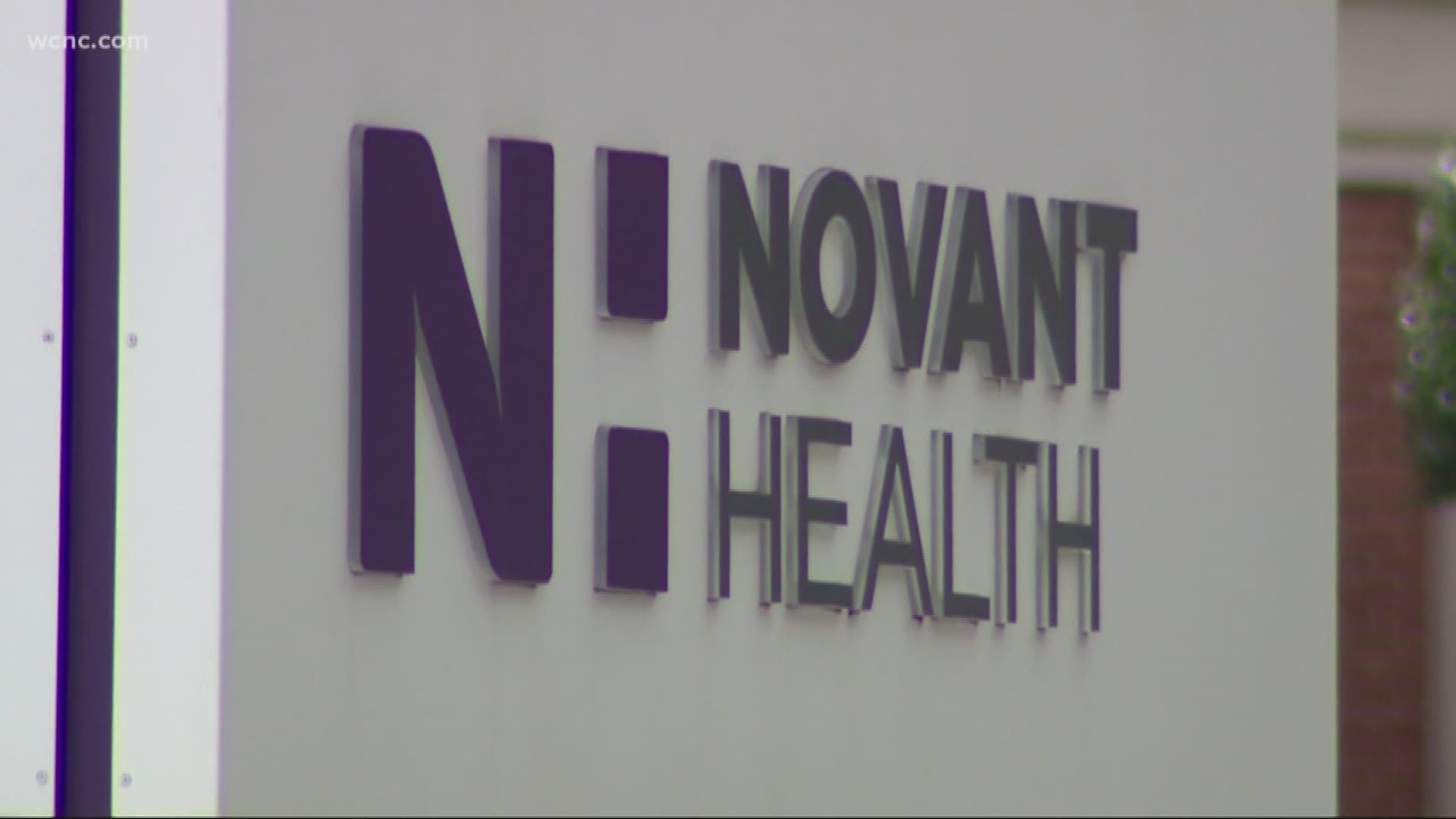CHARLOTTE, N.C. — The most recent federal data shows of the 139 hospitals in the Carolinas, 34 (or almost 25 percent) need to do better preventing hospital-acquired conditions, including a handful in the Charlotte area.
When you go to the hospital, one of the last things you want is to leave with more problems than you came in with. But in rare cases, hospitals are sources of serious infections that can lead to complications and even death.
The government analyzed federal infection and patient safety data annually and penalized hospitals considered among the worst-performing in preventing hospital-acquired conditions. Medicare records revealed some of our hospitals struggled to prevent what is considered "avoidable patient suffering".
Novant Health Presbyterian Medical Center (NHPMC), Novant Health Rowan Medical Center (NHRMC), and Novant Health Matthews Medical Center (NHRMC) received an estimated $1 million combined financial impact after the federal government penalized the hospitals last fiscal year for lagging behind their peers in preventing hospital infections, according to the health system.
NHPMC received a penalty for the fourth year in a row, while NHRMC and NHMMC received penalties for the second consecutive year, according to Novant Health.
"Much of that data is historical, and we're disappointed in those results," Novant Health Senior Vice President of Medical Affairs for Greater Charlotte Dr. Sid Fletcher said. "We continue to work on it, and we will not be satisfied until we have zero hospital-acquired conditions."
Dr. Fletcher said the numbers the federal government uses to dole out yearly penalties are several years old and not a reflection of the changes Novant has made.
State numbers showed Novant Health moved closer to its goal so far in 2018 after continued issues with urinary tract infections linked to catheters last year at NHPMC and NHRMC.
"We took it seriously," he said. "We've put in a multi-pronged approach to try to work on process improvement around many of these hospital-acquired conditions."
He said the health system's had the most trouble preventing catheter-associated urinary tract infections. Dr. Fletcher said Novant Health has a systemwide CAUTI-prevention team that looks at evidence-based best practices and looks for opportunities to remove catheters earlier.
"We've taken a very intentional look of, at the beginning of it, does the patient really need a Foley catheter, or could we use an alternative?" he said. "If we believe you still need to have a Foley catheter inserted, we have dedicated teams of trained personnel that in a buddy fashion, they watch each other do it, they get great placement of these devices, so they're placed in the most sterile and effective technique and then, we're very focused on the maintenance of those."
"What took so long to make these massive improvements?" NBC Charlotte asked.
"That's a great question," Dr. Fletcher responded. "I think the answer to that is it's very challenging. It has just taken multiple layers of approach and we've gotten better."
Whether it's a UTI, MRSA, a dangerous intestinal infection or infections impacting the bloodstream or a surgical site, Dr. Fletcher said Novant Health's goal is to continue improving.
"We take quality and safety very seriously," he said. "It's a top priority and so we've made significant improvements."
Despite the federal penalty, NHMMC scored an overall safety grade of A from the non-profit Leapfrog Group just last week.
Federal records showed Chester Regional Medical Center in South Carolina was the next closest hospital penalized last fiscal year.
Chief Nursing Officer Brian Greig said that payment reduction was the hospital's first and only one since the federal program started. He said because the hospital is so small, one bad case skews its numbers.
"Just one bad outlier will ruin you for the whole year," Greig said.
There are three ways you can protect you and your family the next time you go to the hospital.
It sounds cliché, but the Centers for Disease Control and Prevention says clean hands save lives. Make sure every person you come in contact with washes their hands, including your family.
In addition, be aware of your health. If you find yourself sick to your stomach with constant trips to the bathroom while on antibiotics, speak up. If your skin is red or painful around your catheter, tell someone, and ask daily if it's time for the catheter to be removed.
Finally, only use antibiotics when your doctor absolutely thinks you need them and take them exactly as prescribed.


